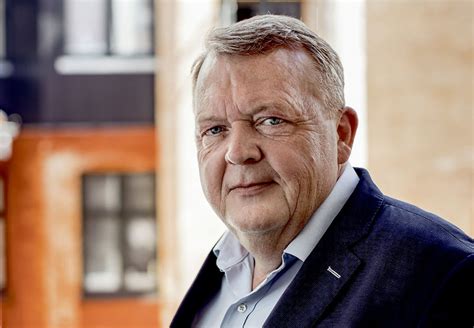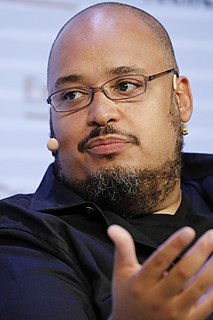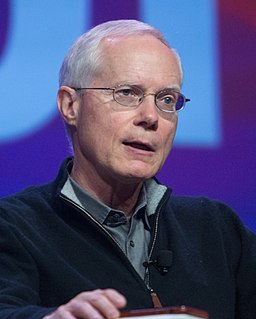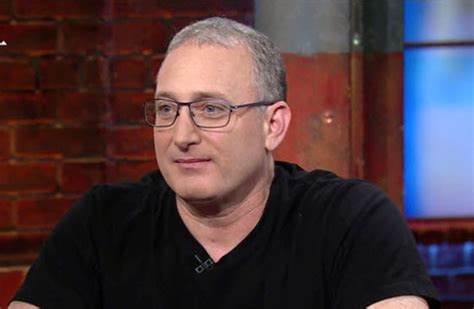Top 383 Startup Quotes & Sayings - Page 6
Explore popular Startup quotes.
Last updated on December 12, 2024.
A startup job is an investment, after all: Venture capitalists may wager money, but you're staking something more precious - your time. And unlike VCs, you can't spread your risk by betting on a bunch of companies at once. Start with TAM. That's 'total addressable market,' and if it's not big enough, there's no point in talking.
You can't predict the future, and you've got to go with your gut on these things, and I'm sure if you speak to a laundry list of CEOs and people who have gone through the startup process themselves, they'll say it's an endless hurdle race, and you are inevitably going to catch your legs on hurdles, and it's just how you roll with that.
A blockchain-based startup could have a product/service as part of what they are developing, but their stride is best hit when they are also creating a self-sustaining circular economy that is supported by their own currency or tokens and where there is a transactional loop between earning and spending these tokens within their ecosystem.
Quite often startups were first out of the gate with a sustaining technology. But somehow the leaders got the technology and stayed atop their industries. Sometimes they acquired the startup; sometimes they just developed the technology as a follower and used their muscle and mass to win. But they always won.
Every new startup business creates new opportunities. It doesn't matter whether you have a new app for college students or a home medical device for senior citizens; there are other multibillion noncompetitive corporations that are spending millions of dollars trying to market their goods and services to your same audience.
A recipe I've seen work in early-stage startups is a small tight-knit group of passionate people who are obsessed with their vision of how to fix a particular industry. Conversely, teams composed of people with a lot of specialized experience at running a large business are not as likely to do very well in the first year or two of a startup.
One of the cool things we're seeing at TaskRabbit is local tech and gaming startups hiring TaskRabbits to test their products and deliver immediate user feedback. As the founder of a tech startup, I can tell you that this type of focus group testing is paramount - and usually really pricey and difficult to coordinate.
A lot has changed in India in the last decade. We can attribute the growth of India's startup ecosystem to the increased penetration of affordable smartphones and data connectivity across the country. Technology is no longer a luxury. People across generation and geographies are making use of mobile technologies. Startups have capitalised on this phenomenon.
In 2007, there weren't any other accelerators, at least that I was aware of. We were almost the prototypical Y Combinator founders: We were highly technical but had never done a startup before. We also didn't know anyone in the Valley - investors, other entrepreneurs, potential hires. YC seemed like a great way to bootstrap that network.
Most startup entrepreneurs unnecessarily spend half their time and give up half their equity in search of funding from angel investors and venture capitalists. Tens of millions of dollars are available to them for free from partners who not only don't want their equity, they don't even want to be paid back.
Valuations are actually quite simple to grasp. A company is only worth what two acquirers are willing to pay for it. Don't you just need to find that one buyer? If there is only one potential company interested in buying your startup, chances are you won't be hearing the word 'billion' in the offer.
In a startup car company, everything you do has to be done in a different way than a traditional car company. And the main reason is that all of these big car companies are operating like giant well-oiled machines - you could put a very seasoned executive in, and all he has to do is make sure the machine keeps running.
There are fun parts of running a startup and not so fun parts, and Facebook handles the not so fun parts, like infrastructure, spam, sales. The real questions are, how big can 'Instagram' get? Is it 400 million, or bigger? Can it be a viable business if it is that big? These are at the top of the list for everyone in Silicon Valley.
The typical workday, particularly in startup mode, is from nine to six or nine to seven, then you take a two-hour break to work out and eat dinner. By that time, you're relaxed, and then you work until midnight or one A.M. If there was no break with physical activity, you'd be more tired and less alert.
The Lean Startup is a process for turning ideas into commercial ventures. Its premise is that startups begin with a series of untested hypotheses. They succeed by getting out of the building, testing those hypotheses and learning by iterating and refining minimal viable products in front of potential customers.
Fred Wilson is a legendary VC and the Managing Partner of Union Square Ventures in New York City. At AVC, he writes one of the most popular startup blogs and covers issues from negotiation to hiring to fundraising. He's a machine for dispensing helpful advice and insightful commentary for those in our industry.
There's this famous observation that I totally believe: Great startup ideas are the ones that lie in the intersection of the Venn diagram of 'is a good idea' and 'looks like a bad idea.' So you want most people to think it's a bad idea and thus not compete with you until you get giant. But for it to secretly be good.
It almost goes without saying that when you are a startup, one of the first things you do is you start setting aside money to defend yourself from patent lawsuits, because any successful company, even moderately successful, is going to get hit by a patent lawsuit from someone who's just trying to look for a payout.
It's harder, but we're still finding oil in Oklahoma today. The bar has been raised on startup companies, but it can still be done. Every regulation and every rule limits you, but, yes, it can still be done. That's the beauty of living in a free country and having the freedom to have an idea and become an entrepreneur.
The first seastead happened fifteen centuries ago. The result was the most beautiful city in the world, Venice. People who were sick of their violent governments fled to the water, where they built civilization on stilts. That startup society - a free city-state on the water - became so successful it dominated the Mediterranean for a thousand years.
Products a start-up builds are really experiments…Learning about how to build a sustainable business is the outcome of those experiments [which follow] a three-step process: Build, measure, learn.” “[A startup is] … an organization dedicated to creating something new under conditions of extreme uncertainty.
There are two companies that the AI Fund has invested in - Woebot and Landing AI - and the AI Fund has a number of internal teams working on new projects. We usually bring in people as employees, work with them to turn ideas into startups, then have the entrepreneurs go into the startup as founders.
Everybody who goes into government gets somewhat chewed up in the process. Being a senior appointee is like being at a startup, only more so: You run into opposition from the entrenched oligopoly of contractors whose business model is to extract as much money from government as possible for doing as little as possible.
You simply can't be tentative in a startup. You have to go for it at every chance you get. And if the leader of the organization is anxious, his or her fear pervades the organization. Everything comes from the top in a company. So if you are starting a company or building one, face your fears and move past them. It's critically important to your company.
Networking is all about connecting with people. But then again, isn't that what life is about? The more time you can find to get out of the office and build true friendships, the farther your startup will go. Entrepreneurs need to remember to spend as much time working on their business as they do in their business.















































